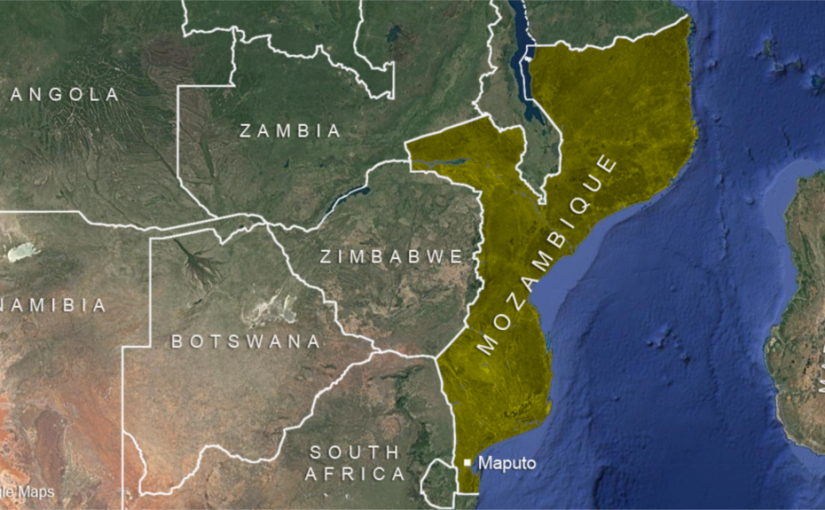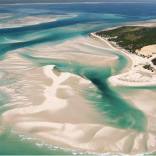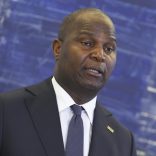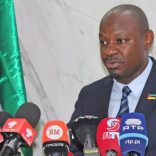Mozambique set to exit EU high-risk third-country list after FATF grey list removal
Mozambique: Covid-19, gas bubble deflates more, Palma squeezed – By Joseph Hanlon

- Covid-19 low and falling, prompting easing of restrictions
Since a September peak of 1500 new cases per week, the number of new cases per week has slowly dropped to 680. And deaths have remained steady at around 10 per week. The are low by Africana and global standards. Mozambique has had 5 deaths per million population compared to Ghana and Malawi (10 deaths per million population), Norway (74), Denmark (176), South Africa (411), Portugal (595), Brazil (871), US (969), and UK (986).
But active cases (81%) and deaths (78%) are overwhelmingly in Maputo city. There have been 115 deaths from Covid-19 in Maputo city which has a population of 1.3 million, which means 88 deaths per million population – worse than Norway, but still lower than in badly effected countries.
President Filipe Nyusi announced an easing for Covid-19 restrictions on Thursday 17 December.
Bars and kiosks selling alcoholic drinks have been closed since 1 April. They can now be open 09.00-16.00 from Sunday to Thursday and 09.00-19.00 on Fridays and Saturdays. The closing time for markets has now been extended from 17.00 to 18.00. The upper limit on the number of people legally allowed to attend private parties and ceremonies has been raised from 40 to 50 in closed, or semi-open spaces, and to 150 in the open air.
Some easing is related to travel, in an attempt to encourage tourism. All operating border posts will start issuing tourist/visitor visas on arrival – this is being done now but not consistently. The results of the PCR (Polymerase Chain Reaction) tests for Covid-19, demanded of all visitors to Mozambique, will now be valid for 96 rather than 72 hours from the moment the sample is collected.
- Covid-19 is a tiny problem compared to malaria and AIDS
In all, Mozambique has had 17,477 Covid-19 cases and 147 deaths.
But Mozambique had 9.3 million malaria cases and 15,000 deaths in 2019 according to the WHO World Malaria Report 2020. https://www.who.int/teams/global-malaria-programme/reports/world-malaria-report-2020
And Mozambique registered 130,000 new HIV/AIDS cases in 2019, and CDC estimates 45,000 deaths per year. Francisco Mbofana, executive secretary of the National Council to Combat AIDS (CNCS), says that 1.3 million people are on anti-retroviral treatment and estimated 900 people currently have HIV but do not know it.
So malaria causes 100 times as many deaths as Covid-19, and HIV/AIDS causes 300 times as many deaths.
- Gas bubble continues to deflate
Expansion of Mozambique LNG capacity is “unlikely to materialise” says Edinburgh energy consultant Wood Mackenzie in a 9 December report. The 2015 Paris Agreement is to limit global heating to well below 2 degrees Celsius, compared to pre-industrial levels, and preferably to 1.5 degrees. Wood Mackenzie modelled gas demand in a world in which the 2 degree target is met, and finds that 77% of new LNG supply would not be needed. https://www.woodmac.com/press-releases/over-three-quarters-of-new-lng-supply-could-be-impacted-in-2-degree-world/
Demand for gas will continue to increase but not very much, and “LNG demand starts declining post 2035.” The “low-cost LNG suppliers Russia and Qatar are expected to be front-runners to fill the modest supply gap”. Thus it seems highly unlikely that projects for which there is as yet no final investment decision (FID) will go ahead. In Mozambique this would include Exxon and expansions of ENI and Total projects. And if governments agree to a 1.5 degree target, there would be even less demand for gas.
The UK will end $ for foreign fossil-fuel projects, Prime Minister Boris Johnson promised the UN Climate Summit. (Financial Times 11 Dec) The $1.5 bn UK Export Finance (UKEF) for the Cabo Delgado LNG project will go ahead, but there will be no future loans and guarantees, which suggests it will be harder for gas companies to obtain billions of dollars of finance to expand the gas project. The UK already has a ban on gas heating in houses built after 2025.
Exxon is writing down the value of its global gas assets by an enormous $17 bn to $20 bn, it said on 1 December, reflecting low global gas prices. (Reuters) Exxon said it will continue with projects in offshore Brazil and Guyana as well as some shale gas in the United States, but it did not mention Mozambique – making it even more questionable if Exxon will ever develop its Cabo Delgado gas field.
ExxonMobil and Total are re-negotiating their production sharing agreement. (Reuters 27 Nov) When exploration licences are granted, by definition it is not clear what is under the sea. It turns out that one Cabo Delgado gas field is partly in Area 1, controlled by Total, and partly in area 4, controlled by ExxonMobil. A production sharing deal was agreed between Exxon, Anadarko and the government, but now, in secret, Exxon and Total (having bought Anadarko) are renegotiating the sharing deal. Total is already building is first gas liquification plant on shore and will start drilling its wells shortly. Exxon is delaying its investment decision and it seems increasingly likely it will not go ahead, so this looks like a way to sell some of the gas to Total to gain some profit from an increasingly unlikely project.
Cabo Delgado
- Palma squeezed
Palma and Mueda now have electricity, after the installation of solar panels. Insurgents cut the power lines and destroyed transformers several months ago, and the installation of solar panels is a recognition that state electricity company EDM will not gain access to its lines in insurgent controlled zones for some time.
There is now only one dirt road from Montepuez north to Mueda and east to Palma. Pinnacle News (17 Dec) points to two recent accidents on the narrow twisting road. Both drivers were killed. (see photo) The rains have just started in the area, which makes the road much more treacherous and navigable only by 4×4 vehicles. Lorries often get stuck in the mud.
Attacks continue in Nangade district on the only open road between Mueda and Palma, with at least 14 people killed and fighting continuing. Some traffic continues on the road but it is seen as high risk, and there are now fuel shortage.
This is further isolating Palma, which has regular access only by air. There is no formal dock, and the only coastal shipping is being done by landing craft which can go up on the beach. World Food Programme recently send foot to Palma this way. But the town appears to be shutting down. Businesses have closed and Carta de Mocambique today (21 Dec) reports that the government offices including the civil registry, district tribunal and district prosecutor’s office have now closed.
- ISS cites Mozambique’s fear of foreign intervention while forgetting its own destabilisation 4 decades ago
“Mozambique’s resistance to any kind of external support that may lead to multilateral foreign intervention in the country” is the reason for the continued delay in involving SADC, concludes the South African Institute For Security Studies (ISS, 18 Dec). In a SADC Organ on Politics, Defence and Security meeting in Maputo on 14 December with the presidents of Mozambique, South Africa, Botswana and Zimbabwe and Tanzania’s deputy president, Mozambique still did not present the plan repeatedly requested by SADC. The meeting only agreed an extraordinary SADC summit in January to discuss Cabo Delgado. So far Mozambique has only requested military supplies from SADC.
The ISS report is entitled “Terrorism in Mozambique needs African solutions.” ISS argues that “Any intervention must draw lessons from other African regions such as the Sahel, West Africa, North Africa and East Africa” and where major problems include “a focus on military action at the expense of human rights and developmental solutions.”
“Mozambique has also prioritised military operations over humanitarian, political and developmental responses which should all go hand in hand. The focus on security has led to the exclusion of community initiatives, particularly the use of local safety groups who have proved very helpful in stopping Boko Haram in some parts of northern Nigeria,” says ISS. “A comprehensive SADC plan must deal with the humanitarian, security, political and economic challenges. … Livelihoods, land redistribution and corruption in the area must be addressed, and reconciliation between communities and government needs to be facilitated.” https://issafrica.org/iss-today/terrorism-in-mozambique-needs-african-solutions
ISS has a blind spot or short memory: In its report ISS says “The Southern African region has never experienced terrorism of this scale in its post-colonial history.” Surely apartheid South Africa’s destabilisation and support for terrorism in Mozambique in the 1980s was of a much greater scale than what is now happening in Cabo Delgado. More than 1 million people died as a result of South African backed-terrorism. Jakkie Cilliers, founder of the ISS, should surely remember because he was in the SADF at the time.
- Nyusi state of nation: repayment and rebuilding delays, Cabo Delgado
President Filipe Nyusi blamed donors for delays in rebuilding after cyclones Idai and Kenneth in March and April 2019, delivering his state of the nation address to parliament on 16 December. Donors gave much less money than was needed, he said, hinting that due to the $2 bn secret debt scandal, donors did not trust Mozambique to manage the money. “To safeguard international transparency procedures, a rigorous selection process with surveys and mapping of actual situations is necessary. Between receiving the promised values and the green light to start the works there is a long process that cannot be shortened.” Only 102 new houses were built to replace those destroyed, and 104 repaired. For 2021 it is planned to build 1621 houses in resettlement villages.
The on-going financial squeeze means that the state still has no repaid all its debts. In 2018 the government admitted that it owed to $277 mn to 5459 suppliers. Of this $180 mn was paid in 2019 but in 2020 only $42 mn was repaid, leaving $55 mn still due, Nyusi reported.
On Cabo Delgado Nyusi finally admitted that as early as 2012 there were radical Islamists “in the districts of Mocimboa da Praia, Palma, Quissanga and Nangade, promoted by a citizen of Tanzanian nationality identified by Abdul Shakulu. At the time, he encouraged disobedience to the Constitution of the Republic, a ban on children attending public schools and compulsory attendance at madrasas.” What Nyusi did not say is that local people and local officials raised this with the authorities at the time, but nothing was done.
He then entered directly into a key symbolic dispute within Islam. “These terrorists promoted entrances to mosques with shoes, shorts and blunt objects. All these practices are deeply contrary to Islam.” However this is precisely the challenge of the fundamentalists. They argue that the Prophet and his followers wore shoes to pray, both to be different from the Jews and Christians who took off shoes, and because the floors of mosques then were sand and stones; this changed when mosques became carpeted. The fundamentalists say just the opposite of what Nyusi said, that taking off shoes is contrary to the original Islam, and they went into traditional Cabo Delgado mosques to make that point. As Nyusi has seen, the issues of shoes has become an important sysbol for the recruits of the fundamentalists, and is used to challenge the Imams seen as allied to Frelimo.
The full state of the nation address with detailed lists of projects, new agricultural processing factories, etc (in Portuguese) is on http://bit.ly/Moc-Nac20
- Reading for the break
Desafios para Mocambique is the most important annual compilation of research looking at the challenges facing Mozambique. Desafios para Mocambique 2020 was published on 17 December and is available free to download (in Portuguese only) on https://www.iese.ac.mz/desafios-para-mocambique-2020-ja-disponivel-electronicamente/
This issue has studies on the Cabo Delgado war, including a comparison with the liberation war, and various reports on Mozambique’s links to the outside world.
But editor Salvador Forquilha has a pessimistic introduction. “The fragility of the state results primarily from the choices made … by political elites and ordinary citizens”. He cites “the trend towards institutionalising violence in Mozambique. … The country has been living from violence to violence. … Mozambique still has a long way to go, particularly with regard to reconciliation. In fact, nowhere in the world is reconciliation made of speeches. It is made up of concrete actions from the point of view of the process of institution building. [If institutions] do not promote political, economic and social inclusion, it is unlikely that Mozambique will have lasting solutions to recurrent violence and the discourse of so-called effective peace and reconciliation will be mere rhetoric of politicians.”
Sérgio Chichava has become the new Director of IESE (Instituto de Estudos Sociais e Económicos) following Salvador Forquilha (2015-2020), Luís de Brito (2012-2015) and Carlos Nuno Castel-Branco (2007-2012). All were founder members of IESE, and all have articles in the new Desafios 2020.
- China in Mozambique: high investment and land holdings, but low contracts and trade
Mozambique is high for Chinese investment and agricultural land, but its involvement is low in other areas. In many of the numbers it is very similar to Ghana. Chinese foreign direct investment (FDI) in 2018 in Mozambique was $546 mn, third after South Africa and Democratic Republic of Congo. Mozambique’s total Chinese FDI is $1.4 bn, the 7th in Africa.
China’s land holdings in Mozambique are 31,200 ha, its second largest in Africa (after Cameroon). This covers six projects, of which the two biggest total 26,000 ha for rice in the Limpopo valley. The data from the Johns Hopkins University China Africa Research Project, which is headed by Prof Deborah Bräutigam, who is the expert on China-Africa investment and trade.
But in other sectors, Mozambique is not in the top 10. Chinese gross revenue from contracts in Mozambique totalled $3.6 bn in in the peak years of 2015,16,17. But this was only the 14th highest in Africa. Mozambique’s total debt to China is $2.45 bn, of which $2.15 is export credits and the key sector is transport at $1.5 bn. Again, Mozambique ranks only 14th.
Imports from China were $1.9 bn in 2018, and exports to China $651 mn, again very far down the list. In 2018 there were 3153 Chinese workers in Mozambique.
Background article on https://furtherafrica.com/2020/07/24/new-data-on-chinas-activities-in-africa-facts-not-fiction/ and data bases on http://www.sais-cari.org/data. Bräutigam’s July 2020 briefing paper “Risky Business: New Data on Chinese Loans and Africa’s Debt Problem” is on http://bit.ly/3naaMTL
“Russia’s economic presence in Africa is limited, and it cannot compete either with traditional powers like the US, UK, France and Germany or with new powers like China,” writes a disappointed Dzvinka Kachur in a detailed report on Russia in Mozambique and Zimbabwe by SAIIA (South African Institute for International Affairs) in November. She had clearly hoped to find more, but she remains hopeful: “The political leadership of both Mozambique and Zimbabwe has sought support from Russia in maintaining their power in the face of internal political opposition, and has been enthusiastic in using their countries’ natural resources to remain in power.” https://saiia.org.za/research/russias-resurgence-in-africa-zimbabwe-and-mozambique/
By Joseph Hanlon












Leave a Reply
Be the First to Comment!
You must be logged in to post a comment.
You must be logged in to post a comment.